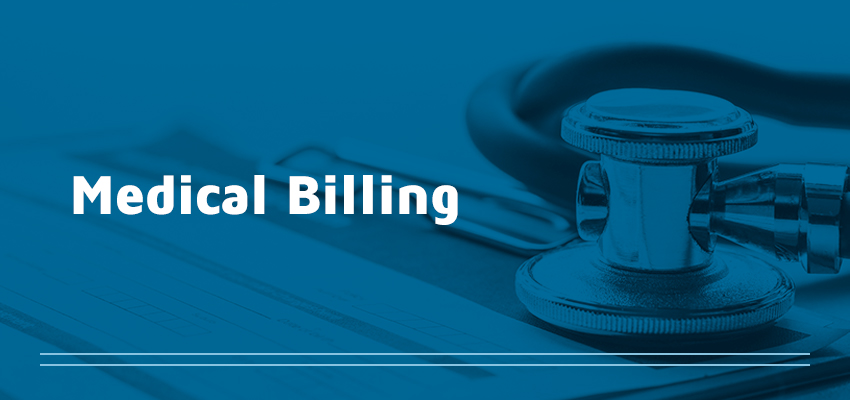When it comes to medical billing, few things are as critical as ensuring compliance with HIPAA regulations. HIPAA, or the Health Insurance Portability and Accountability Act, was introduced to safeguard sensitive patient data, and its implications stretch deep into every corner of the healthcare revenue cycle.
Medical billing professionals must tread carefully to maintain compliance while handling patients’ personal and health information. Whether you’re a small practice or a large healthcare group, following HIPAA guidelines for billing isn’t just about avoiding fines—it’s about earning your patients’ trust and protecting their health information.
For those seeking to elevate their compliance practices, medical coding consulting services can be a valuable resource to ensure adherence to the latest rules and best practices.
Understanding HIPAA in Medical Billing
HIPAA is primarily designed to ensure the privacy and security of Protected Health Information (PHI). In the context of medical billing, this means that any information transmitted, stored, or accessed during the billing process must be secured according to HIPAA standards.
PHI includes:
- Patient names
- Birthdates
- Social Security numbers
- Treatment information
- Insurance data
Failure to protect this data can result in legal penalties, damaged reputations, and even loss of business.
Common HIPAA Violations in Billing and How to Avoid Them
Here are some frequent mistakes made in medical billing that violate HIPAA, and tips on how to prevent them:
1. Improper Handling of Paper Records
Even in the digital age, many billing departments still use paper forms. Leaving these records unattended or in public view can lead to HIPAA breaches.
Solution:
Secure all physical documents in locked cabinets and ensure they’re only accessible to authorized personnel.
2. Emailing PHI Without Encryption
Sending billing information via unencrypted email is a serious violation.
Solution:
Use HIPAA-compliant email platforms that encrypt messages and ensure secure transmission of sensitive data.
3. Unauthorized Access to Billing Software
Letting unauthorized staff access billing software is another common problem.
Solution:
Set strict user permissions and implement two-factor authentication to limit system access to qualified personnel only.
Training Staff for HIPAA Compliance
Training is the cornerstone of HIPAA compliance. Every employee who touches medical billing data must understand the rules and how to apply them.
- Conduct regular training sessions covering HIPAA policies.
- Use real-life scenarios to help staff recognize and react to potential violations.
- Keep updated logs of all completed training sessions for auditing purposes.
Implementing Secure Electronic Systems
Digital tools streamline billing, but they must be secure. HIPAA mandates that any system used to handle PHI must be compliant.
Key Security Features to Implement:
- End-to-end encryption
- Automatic logout from inactive systems
- Audit trails that track user access and activity
- Secure backups to prevent data loss
Even something as minor as leaving a screen open in a shared space can be a violation, so features like screen-timeout functions can make a big difference.
Using Business Associate Agreements (BAAs)
Medical billing companies often work with third-party vendors. If these vendors access PHI, they are legally considered business associates and must also be HIPAA-compliant.
Always have a Business Associate Agreement (BAA) in place, which outlines each party’s responsibilities when it comes to handling PHI.
Responding to Breaches and Violations
Despite best efforts, breaches can still occur. What you do next is just as important as the preventive measures.
Steps to Take:
- Notify your HIPAA privacy officer immediately.
- Investigate the breach and determine the extent of exposure.
- Inform affected individuals within 60 days.
- Report the breach to the Department of Health and Human Services (HHS) if it affects more than 500 people.
This swift and transparent response helps maintain credibility and reduces legal repercussions.
Audit-Readiness and Documentation
HIPAA compliance is an ongoing responsibility. Regular internal audits help ensure continued adherence to regulations.
- Maintain thorough documentation of all HIPAA policies.
- Log all instances of PHI access and disclosures.
- Review security procedures quarterly.
Having solid documentation doesn’t just help in an audit—it shows commitment to responsible data handling.
The Human Element in Compliance
Technology and processes are critical, but people ultimately ensure compliance. Foster a workplace culture where privacy is a shared value.
Encourage employees to:
- Speak up if they notice a potential issue.
- Double-check before disclosing any information.
- Continuously educate themselves on HIPAA changes.
Even something casual like discussing a patient case in a hallway could become a violation. Awareness is key.
Why Compliance Is Worth the Effort
Yes, staying HIPAA-compliant in medical billing requires effort and investment. But the benefits far outweigh the risks:
- Avoid costly penalties (which can go up to $1.5 million annually per violation type).
- Protect your patients from identity theft and data misuse.
- Build trust and credibility with clients and partners.
We once heard from someone at Medi-Solutions Management that getting hit with a violation is like “getting caught with your pants down in public”—embarrassing, expensive, and totally avoidable if you’d just zipped up properly to begin with.
FAQs on HIPAA Compliance in Medical Billing
1. What is HIPAA and why does it matter in medical billing?
HIPAA is a law that protects patient data. In billing, it ensures sensitive information is kept private and secure.
2. Can I use email to send patient bills?
Only if the email platform is encrypted and HIPAA-compliant. Otherwise, it’s a violation.
3. Do small clinics need to follow HIPAA rules?
Absolutely. HIPAA applies to any entity that handles PHI, regardless of size.
4. What happens if there’s a breach?
You must notify patients and possibly report to HHS. Fines and legal action may follow depending on the severity.
5. How often should staff be trained?
At least annually, but more frequently if there are updates or known issues.
6. Are billing companies responsible for HIPAA too?
Yes. If they handle PHI, they must be compliant and have a signed BAA with the healthcare provider.







